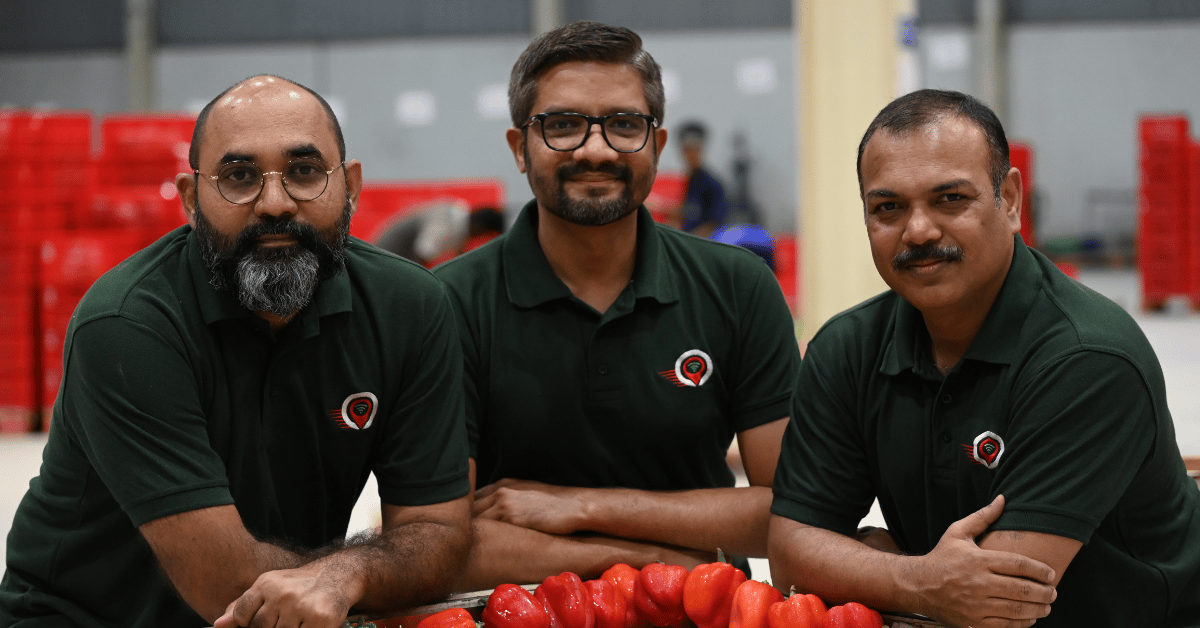With this funding, the startup plans to go beyond fresh produce and groceries and aims to expand into non-food FMCG items, staples, household essentials, and other discretionary products
The company will also invest in enhancing its tech stack to provide more efficient, accessible services for its consumers
Founded in April 2022 by Selvam VMS and Senthil Kumar, the startup aims to solve the supply chain problems for fresh commerce in India. It operates on a phygital model to serve semi-urban and rural consumers in India
Supply chain network enabler for fresh products, Wheelocity, has raised $15 Mn (INR 126.5 Cr) in a Series A2 round funding, led by existing investor Lightspeed. The round also saw participation from Alteria Capital, Anicut Capital, and the company’s founder, Selvam VMS.
The company plans to go beyond essential categories, such as fresh produce and groceries, and expand into non-food FMCG items, staples, household essentials, and other discretionary products.
With this funding, the startup plans to expand to 20,000 towns and villages over the next 12 months, targeting a reach of 10 Mn consumers. Currently operating in Tamil Nadu it aims to expand into South Indian states such as Karnataka, Telangana, Kerala and Andhra Pradesh.
Wheelocity will also invest in enhancing its tech stack to provide more efficient, accessible services for semi-urban and rural consumers. This growth will be supported by advancements in technology, a direct reach network, and expanded teams across category management, operations, product, and engineering, the company said in a statement.
Till date, Wheelocity has raised $27 Mn. In 2022, the startup raised $12 Mn in a Series A funding round led by Lightspeed Venture Partners, with participation from Anicut Capital. The funding included a mix of equity and venture debt.
Selvam VMS, founder and CEO of Wheelocity, claimed the startup’s vision is to build a commerce ecosystem specifically designed for these markets, taking into account their unique challenges and opportunities.
Founded in April 2022 by Selvam VMS and Senthil Kumar, the supply chain startup aims to solve the supply chain problems for fresh commerce in India.
Initially launched as a B2B model working with ecommerce players, the startup pivoted its model in October 2023. Its current model focuses on building a semi-urban and rural ecommerce platform.
“We reached product-market fit around February-March this year when we were present in just 30 villages. Now, we are present in 3,500 villages and have experienced significant growth. We have scaled up to 100X over the last six months. Our next goal is to expand to 20,000 villages within the next year,” Selvam told Inc42
The brand operates on a “phygital” (physical plus digital) model to serve semi-urban and rural consumers in India, addressing the limited access to essential products in these areas. Currently, with a focus on fresh and grocery products, the company delivers daily to towns and villages through a high-frequency supply chain. Consumers can either order via a mobile app or make purchases directly from three-wheel electric carts that enter their villages.
“This offline presence builds trust with consumers, encouraging them to gradually shift to online purchasing,” the CEO added.
India’s semi-urban and rural markets offer a $1.1 Tn opportunity, driven by digital adoption through increased smartphone use and better internet connectivity. However, as per the startup existing players face three challenges such as fragmented demand, complex consumer preferences, and limited market reach.
Wheelocity aims to address these issues by providing high-frequency direct access infrastructure, starting with essential goods and expanding to discretionary categories.
According to the CEO, Wheelocity’s main competitors are weekly haats and local kiranas. Weekly haats are open only once a week and require consumers to travel 3-5 km, while local kiranas offer limited selection and freshness. In contrast, Wheelocity offers a superior solution with availability seven days a week, doorstep delivery, a wider selection, and fresher produce.

